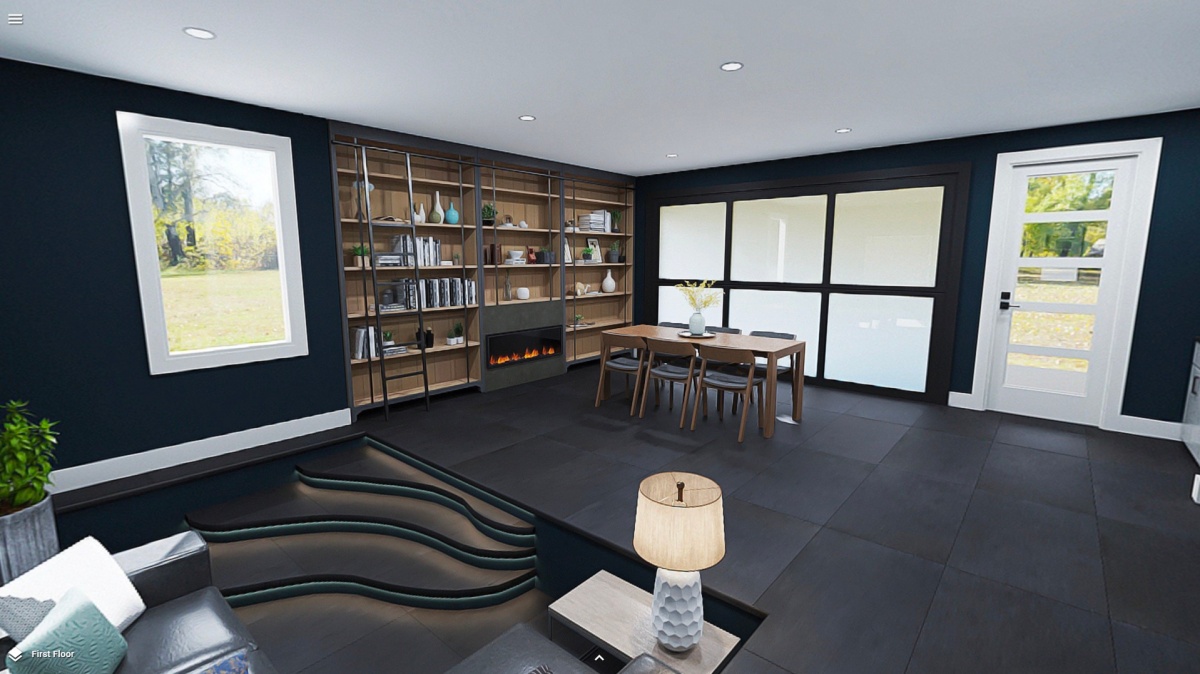YC, Khosla-backed Atmos lands $12.5M to design custom dream homes • ZebethMedia
Atmos, a startup which has built an online marketplace that teams up homebuyers with builders and land developers to design and build custom homes, has emerged from stealth today with $12.5 million raised in Series A funding round led by Khosla Ventures.
Founded in 2018, San Francisco-based Atmos touts that with its tech, homebuyers are able to select land, design a home within their budget and approve the design using 3D tech. It then teams up buyers with a “vetted builder partner.”
The startup aims to give buyers more options as the nation faces a persistent housing shortage and during a time when mortgage interest rates have more than doubled since last year. Atmos claims it can also help builders by providing them with ready-to-go buyers as opposed to building on spec (without committed customers) in an uncertain market. It also says it can help land developers by allowing them to go direct-to-consumer.
Existing backers Bedrock, JLL Spark, YC and OpenAI CEO Sam Altman participated in the financing along with new investors real estate brokerage Keller Williams, Duke Angel Network, Bain Capital co-chairman Stephen Pagliuca and Figma CEO and co-founder Dylan Field. The company previously raised nearly $2 million in March 2020. It participated in Y Combinator’s summer cohort that same year, and then raised an additional $4 million led by Khosla.
“On Demo Day, we got a term sheet from Khosla,” said Nicholas Donahue, CEO and co-founder of Atmos. “Within two weeks, we’d accepted it.”
Atmos says its technology allows buyers to see “exactly what can be built on any specific lot depending on the size, shape and development requirements.” First, it assists buyers with getting a survey and soil test, and then designing a home based on their individual preferences. Once a builder is solidified, construction can begin.
“We’re trying to put more of the design process online,” Donahue said. “We also onboard partners as well as gather certain local data such as zoning requirements and typography.”
It also checks to make sure construction would not violate any HOA restrictions before a buyer wastes too much time on a project.
The average cost of building a home through Atmos is about $225/square foot. So for a 1,500-square-foot home, that comes out to about $337,500. That’s cheap or expensive, depending on which market you’re building in. Certain selections such as whether a buyer chooses to build a one-story ranch home or a two-story house can impact costs, Donahue adds.
So far, the startup has built six homes and is “working on a few dozen more,” he said. It makes money by charging a 5% service fee on the cost of construction to homebuyers “for due diligence, design, and project management.” It also charges a $20,000 flat fee to builders for finding, vetting and servicing a client, as well as handling any of the pre-construction services they would otherwise have to handle.
Eventually, Atmos has its sights on what it describes as other emerging tech markets such as Denver, Austin, Portland and Salt Lake City.
Unlike fellow Khosla portfolio company Homebound, which raised $70 million earlier this year and describes itself as a “tech-enabled homebuilder,” Donahue says Atmos is focused more on the pre-construction of a home.
“We’re more design-oriented, and focus more on the process that someone goes through to create the house,” he told ZebethMedia. “My belief is that more people would build if it was just simpler and less ambiguous, and they had the ability to design a home that is unique to them.”
He believes Atmos’s biggest differentiator compared to other startups in the space like Welcome Homes is that it offers “more flexibility” and freedom in the design phase.
Interestingly, unlike most startups that raise capital, 26-person Atmos does not plan to use its new funds to hire in this market, according to Donahue. It’s focusing on building out its marketplace.
“You have all of these, like builders and developers that are functioning in a very hot environment … that ended up purchasing tons of land on which they usually choose to go spec instead of working with a client to build custom,” he said. “We see opportunity to help them unload some of their over-leveraged assets.”
Khosla Ventures partner and DoorDash co-founder Evan Moore gained experience in the real estate space having helped the Opendoor team pre-launch to lead product. He told ZebethMedia via email that in his prior work, he spoke with many families buying tract homes, which are “the massive subdivisions of homes that all look the same.”
“Many wanted to build a home custom to their own needs, but couldn’t figure out where to start, and couldn’t get certainty of timeline or price,” Moore said. “It was clear to me then that if someone could provide a trustworthy, transparent process, more people would build custom homes… I think in the coming years it’ll seem obvious that one should be able to find available lots, design homes that work on those lots per local regulation, and start your build — all online.”
